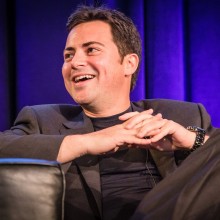Dr. Philip Steven Low made his first scientific discovery at Harvard Medical School, as a teenager. While inventing new brain monitoring techniques at the University of Chicago, he was referred to the Salk Institute by Francis Crick, Nobel Laureate of DNA fame, where he authored a 1 page PhD thesis on dynamic brain activity mapping, which led to his creation of NeuroVigil, the neurotechnology company responsible for iBrain, a portable brain activity monitor, with first and second round valuations two and two-and-a-half times Google’s and Facebook’s combined, respectively, as well as to the Cambridge Declaration on Consciousness, the first formal document by Neuroscientists recognizing consciousness in non-humans.
He was appointed to dual positions at the Stanford School of Medicine and the MIT Media Lab in his twenties. His partners include Roche and Novartis, his collaborators include Stephen Hawking and NASA, his advisors include Stephen Wolfram and Nobel Laureates Sydney Brenner and Roger Guillemin and his backers include IdeaLab’s Howard Morgan, Qualcomm’s Irwin Jacobs & Andrew Viterbi, DFJ’s Tim Draper and SpaceX’s and Tesla’s Elon Musk. He chaired the 1st Intl. Congress on Alzheimer’s & Advanced Neurotech as well as the Francis Crick Memorial Conference. He advises the White House, Congress and the Israeli Government on Neurotech.
Dr. Low’s honors include the MIT TR-35 Top Young Innovator Award, the DFJ Venture Challenge and the Jacobs-Rady Pioneer Award for Global Innovation & Entrepreneurship. His inventions and discoveries have been profiled in scientific and popular media including Science, PNAS, CNN, TIME, Newsweek, Forbes, the Economist, the Washington Post which lists NeuroVigil as one of the “Top 10 Most Innovative Companies in Health Care”, The Scientist which singled out Dr. Low as “A Scientist to Watch” and the New York Times which has recognized iBrain as “an innovation that will change your tomorrow.”
